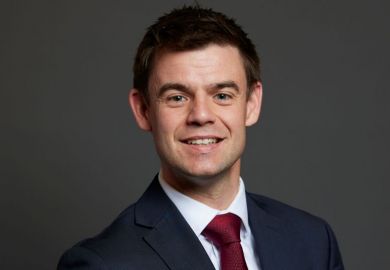The lack of academic representation at decision-making levels has left Royal Holloway, University of London, lacking in “independent, freethinking” input, union members have said.
An analysis of the institution’s council found it to have the largest proportion of non-academic staff members of 31 comparator institutions and the second-lowest proportion of elected academics, at 12 per cent.
The institution is also one of three of the group in which independent academics - those elected rather than present by virtue of a managerial position - make up no more than a fifth of the institution’s academic board, the body responsible for the academic work of the college.
The analysis found that at the other end of the scale, in some institutions elected academics made up as much as 79 per cent of the academic board and 30 per cent of council members.
The comparison looked at the composition of decision-making bodies of 31 current or recent Russell Group and 1994 Group universities that comply with Committee of University Chairs requirements, and excluding the universities of Cambridge and Oxford.
Alongside the principal, Paul Layzell, Royal Holloway’s 25-strong council includes 16 external members, three academics, three non-academic staff members and two student members.
Of the academic board, managerial appointments make up 29 of 40 members, with just eight independent academic members and three student representatives.
The Royal Holloway University and College Union’s Governance Working Group, which carried out the study, said that rather than reduce academics’ administrative burden, their diminished role in governance had led to more bureaucratic control that “makes life as an academic more tedious and stressful”.
“More and more of our time is taken up with trying to fulfil ill-thought- through directives rather than concentrating on the key businesses of research and teaching,” a representative for the group of academics told Times Higher Education.
The working group was established in the wake of a series of management decisions at the university - including appointments to senior positions and mooted redundancy plans - that members saw as having been made on an “ad hoc” basis and with too little scrutiny.
The university was also recently in the spotlight after a landmark equal pay case at an employment tribunal, brought by Liz Schafer, a professor of drama and theatre studies, with the union’s backing. It led to the introduction of a transparent pay scale for professors in 2011.
A spokeswoman for Royal Holloway said the university was currently reviewing the effectiveness of its governance structures and processes, in line with guidance from the CUC.
“This review considers the impact, relationships, composition and operations of our governing bodies, including college council and academic board, and includes surveys, benchmarking with similar institutions and consultation with staff. The review is due to conclude early next year,” she added.
The union’s working group added that across the sector, the policing of governance had “not kept pace with the development of the senior management ‘brotherhood’ that now floats from institution to institution implementing short-term, often short-sighted, initiatives”.
The minimal governance role of non-managerial academic staff results in a “lack of independent, freethinking, academic input into key decisions that impact on our jobs, our activities and more widely society as a whole”, it claimed.
Register to continue
Why register?
- Registration is free and only takes a moment
- Once registered, you can read 3 articles a month
- Sign up for our newsletter
Subscribe
Or subscribe for unlimited access to:
- Unlimited access to news, views, insights & reviews
- Digital editions
- Digital access to THE’s university and college rankings analysis
Already registered or a current subscriber? Login




